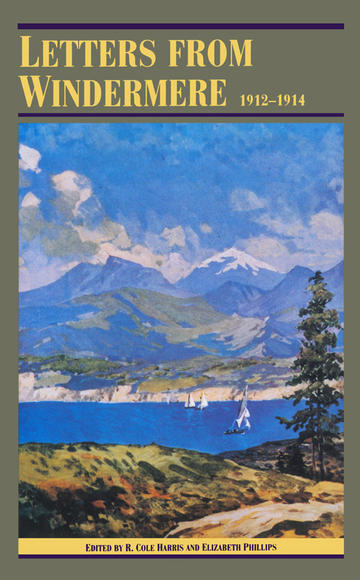About BC Books Online
BC Books Online was created for anyone interested in BC-published books, and with librarians especially in mind. We'd like to make it easy for library staff to learn about books from BC publishers - both new releases and backlist titles - so you can inform your patrons and keep your collections up to date.
Our site features print books and ebooks - both new releases and backlist titles - all of which are available to order through regular trade channels. Browse our subject categories to find books of interest or create and export lists by category to cross-reference with your library's current collection.
A quick tip: When reviewing the "Browse by Category" listings, please note that these are based on standardized BISAC Subject Codes supplied by the books' publishers. You will find additional selections, grouped by theme or region, in our "BC Reading Lists."
Written primarily by Daisy Phillips, with a few by her husband Jack, to her family in England, these letters describe the creation of a shortlived English home in the Windermere Valley of southwestern British Columbia. Not given to introspection, Daisy registers her immediate and frank reactions to her new environment and startling new way of life. From her letters we learn of the experiences of the Phillips and their neighbours in settling the newly opened land and of their attempts to grow fruit in an area with limited agricultural potential.
R. Cole Harris is a professor in the geography department at the University of British Columbia. Elizabeth Phillips, daughter of Daisy and Jack, was born in Windermere and lives in England.
This poignant tale of thwarted hope has been transformed into a most attractive book ... It is a very interesting individual story, and a valuable set of primary documents well supported by R. Cole Harris’s helpful introduction.
One of the many values of Letters from Windermere is the light they shed on the experiences of a middle-class woman emigrant .... The letters will be a gold mine for those interested in the domestic taste of the period.
As for the letters themselves, they are, quite simply, splendid. Thanks to Daisy's penchant for detail we are treated to a day-to-day account of the lives of these expatriate gentlefolk. We learn what they ate, what they wore, what they read ... We begin to see how they thought and how they viewed their world. Altogether, Letters from Windermere has an intimacy and immediacy that sets it above the usual ruck of immigrants' memoirs.



